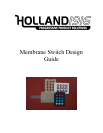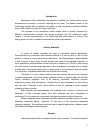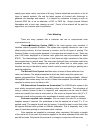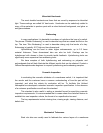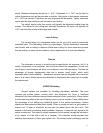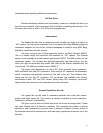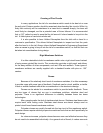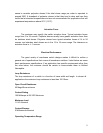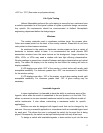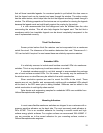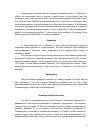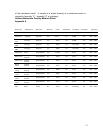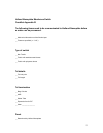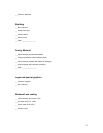7
Creasing of Flex Circuits
In many applications the tail of a membrane switch needs to be bent at or near
the exit point. Extreme caution should be exercised when bending flex circuits. While it is
likely that continuity will be maintained in a trace that is creased sharply, the trace will
most likely be damaged, and be a potential area of future failures. It is recommended
that a .010" radius be used to wrap the flex tail around if a bend needs to be put into the
tail. A folded piece of card stock works well.
It is also possible to have Holland Nameplate form the tails with a bend to a
customer’s specification. This allows Holland Nameplate to inspect and test the parts
after the bend is in the tail. Always inform Holland Nameplate’s Engineering Department
when a crease is going to be put into the tail of a membrane switch, so that this fact can
be taken into consideration during design.
Rigid Membrane Switches
It is often desirable to build a membrane switch onto a rigid circuit board instead
of using screen printed flex circuits. This construction provides a rigid panel, and allows
for the easy addition of other components, such as LEDs and resistors. These types of
membrane switches are usually supplied with a standard header with pins on .100"
centers.
Domes
Because of the relatively short travel of membrane switches, it is often necessary
to provide users with some type of feedback. Feedback can be visual, audible, or tactile.
Visual or audible feedback should be a consideration in the electronics design.
Domes can be added to a membrane switch to provide tactile feedback. There
are two types of domes that we use in membrane switches, stainless steel and
polyester. There is no significant difference in reliability between these two dome
technologies.
Many people prefer the feel of stainless steel domes. Stainless steel domes also
require lower initial tooling costs. Stainless steel domes are almost always used on
printed circuit board based membrane switches.
Polyester domes are usually formed into the top circuit of the membrane switch.
Polyester domes require relatively expensive machined tools that are built specifically for
each design.
As volumes increase, polyester domes become more cost effective because they
do not need to be assembled individually. As a general rule of thumb, it makes economic



